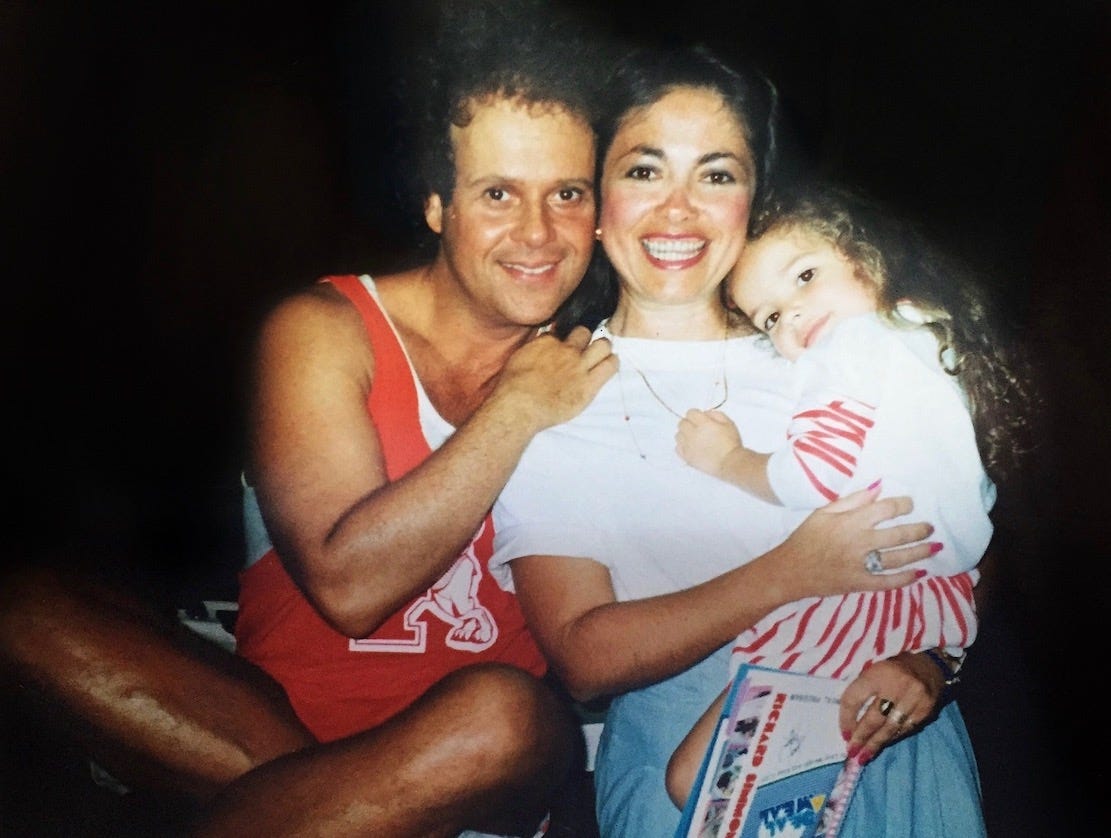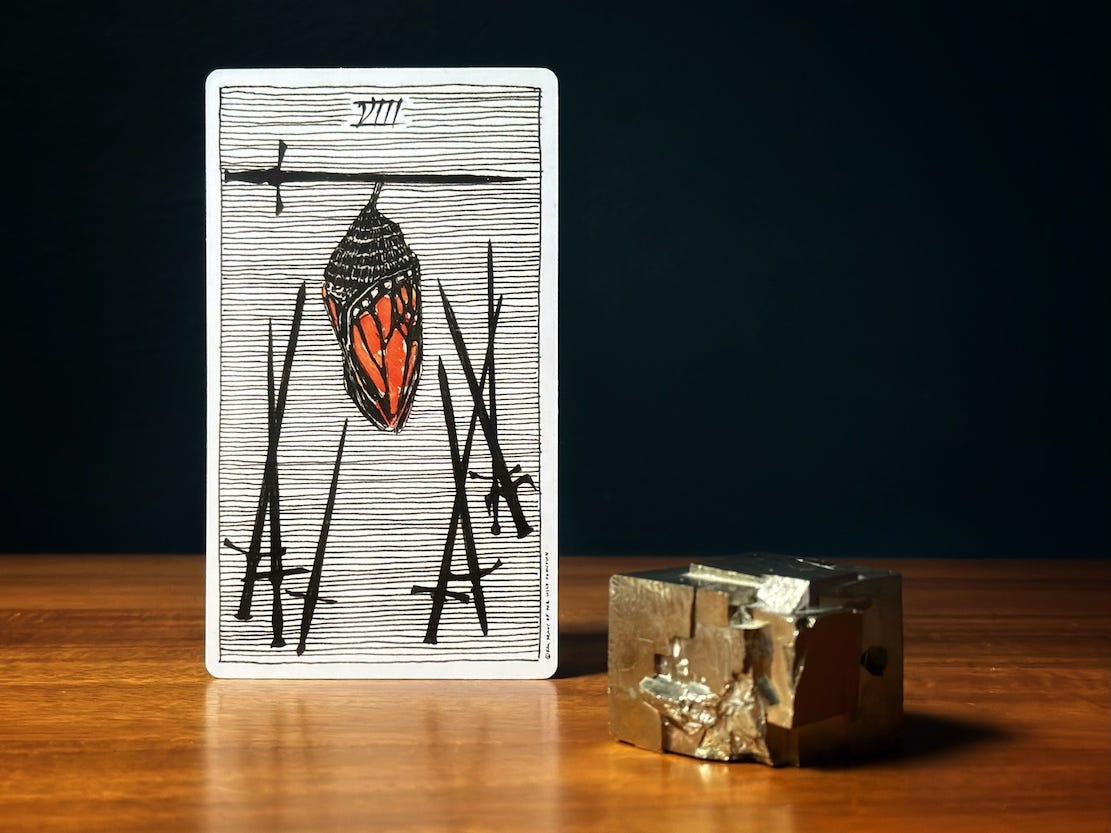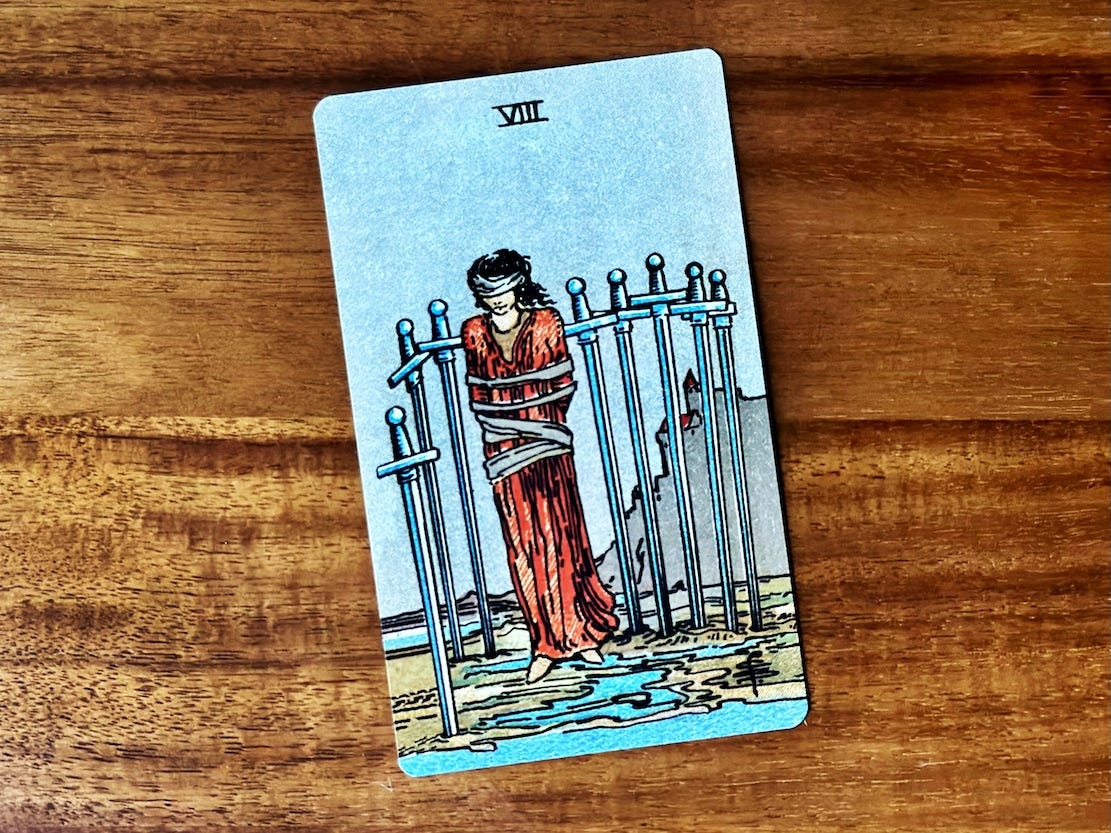The week my mother died, before I could begin to metabolize her absence, I was showered with the same six words. “She was so proud of you.”
Across cards and texts and phone calls, they flowed from those that knew her as if they were the only words in existence. I felt their sincerity. They were offered not as a platitude, but the sharing of a widely held truth.
My agreement with this statement made it no less shocking. The pride they found so evident was never expressed to me.
*
It is impossible to capture someone’s essence in a thousand-ish words, never mind the nuance of a mother-daughter dynamic. So may it suffice to say that my mother loved me — her only child — with a ferocity that could rival the sun. She wanted the best for me, along with independence, self-sufficiency, and to never feel trapped. She wanted to give me every opportunity, including and especially the ones she didn’t have.
In theory, this is beautiful. In practice, her interpretation of “best” was often narrow. For a birthday, she might give me a card or journal emblazoned with some version of, “Follow your dreams!” But if ever I attempted to follow one, it was met with derision and resistance.
In my youth, there were acceptable extracurricular activities (ballet and piano). In school, acceptable majors (NOT English, Art History, Creative Writing, or Theatre, any of which I would have loved). After graduation, there were acceptable career paths (lawyer, doctor, banker — full stop).
I jumped through hoops with the verve of a trained dolphin, dutifully wedging myself into shapes that felt wholly unnatural. I sought jobs with comprehensive benefits packages, in towering buildings with cavernous marble lobbies. I scaled ladders, spewing corpspeak with every ascending rung. I did my best to merge her dreams with my own, which grew fuzzier by the day.
After years of searching, I applied to a graduate program for the arts, and the loan paperwork was sent to my parents’ house instead of my apartment. Without my knowledge, my mother opened it, rescinded my application, and ripped up the evidence. “No child of mine!” she yelled into the phone when I learned what had happened. “No child of mine!” I was nearly thirty.
I used to say I became a writer by accident, but that isn’t quite true. It was very much intended, but the path was circuitous. It developed like a bad habit, in stolen moments under the cover of darkness, bathed in feelings of shame. However it happened, it will always feel like a miracle.
*
I remember with startling clarity the day my first personal essay went live. It ran alongside a contributor photo in which I appear seated in my apartment, wearing a sweater, jeans, and Converse. I texted to ask if she’d read it. The reply was swift. Two words: Nice sneakers. It wasn’t a compliment.
*
A few years later, I joined the staff at a magazine where a colleague’s mom sent her daily emails with words of praise for her writing. She read them aloud, rolling her eyes in mock embarrassment. “Jesus,” I’d mutter under my breath, “with a mom like that how have you not won a Pulitzer by now?”
As my peers shouted their work from the rooftops, broadcasting their lives on screens of all sizes, I took great pains to hide mine. When an essay or interview ran, I braced myself, hoping the Google alert would somehow miss it. I didn’t fear trolls, plural, only the one voice that mattered.
I developed a concerning appetite for unbylined articles and happily signed on to ghostwrite books for varying levels of acknowledgment. One could do worse; it paid the bills, was often interesting, and proved a good match for my skillset. But I grew comfortable — too comfortable — beneath the veil of invisibility.
*
That early essay, sneakers and all, garnered another note, from a literary agent. It was the first of many little turning points, breadcrumbs I would follow in the years to come. It was — I am — a work in progress.
*
Though she never said the words, she left evidence.
In her home, a shelf contains every book I’ve ever worked on, some in duplicate. Her abandoned inbox brims with proof — emails from Brooklyn Magazine and Poets and Writers, posts from freelance writing job boards. Everywhere, I see signs of her silent investment, her private attempts to understand.
Twenty years ago, I ordered fancy business cards in an effort to manufacture validity. They are embarrassingly green: embossed with my name and the word “writer,” followed by a now-defunct email address. I gave them to no one. At some point, I lost track of the box and had all but forgotten they exist.
After she is gone, I find one in her wallet.
*
I’ve been drafting this essay my whole life, though I didn’t know if it would see the page, never mind the light of day. But from where I stand, in the harsh glow of this brave new world, there is no other way.
Before, the prospect felt like a betrayal, unleashing a secret I had no choice but to conceal: the shameful tale of my art and the woman who couldn’t accept it. Now, I understand. It is a love story. The best ones are rarely soft, straightforward, or predictable. Neither, for that matter, are people.
They say a mother is your first home. My story begins with her. But I alone must write the ending.
*
My mother left me many gifts.
My name is her name. My face is her face.
She taught me to read and never refused me a book.
She loaned me her wit (and her jewelry) which I opted to keep for good.
She showed me that people are imperfect and impermanent, and inherently worthy of love.
She urged me to be my own person, and I’ll be damned if I didn’t listen.
Some gifts are shaped like question marks, others shaped like voids. Her love for me could eclipse the sun, and yet she could not say it. So I yelled in the margins and bled on the page and screamed in hastily scrawled caps. I found voice enough for both of us. And I did my best to sing.
Against her own best wishes, my mother made a writer. These words are my inheritance, and I will honor every one.
I am mindful of tense and certain in my phrasing when I tell you: I know she is proud.

Monthly subscription: $5
Supporting a writer, contributing to their livelihood, and helping affirm their dreams/purpose/existence: Priceless
Card of the Week
Here is this week’s card for the collective, as well as some thoughts to carry into the days ahead. As most modern readers will tell you, the tarot is not about fortunetelling, nor is it about neat, definitive answers. The cards are simply one path to reflection, a way of better knowing ourselves and others through universal themes. If this reading resonates with you, great! And if not, no worries. Take whatever may be helpful and leave the rest.

In client readings over the past few months, the Eight of Wands has shown up more than any other card. So I was pleased, though not surprised, when it appeared this week with an invitation to unpack its message.
On the surface, this card is about feeling trapped, unable to make a move. If one were to consult a search engine or the little booklet that often comes with a tarot deck, it would say things like “stuck in a loop” or “backed into a corner.” (Fun.)
As this card bears the suits of swords — symbols of the mind — it suggests that any stagnation we feel isn’t due to our external circumstances, as much as we may think so. It is the result of our very own thoughts.
Indeed, the classic interpretation goes, we are what’s standing in our own way. Perhaps we are ensnared in our patterns, governed by our fears, weighed down by our limiting beliefs. Perhaps we’re mired in emotional quicksand. (An understandable feeling, given the state of… [waves hand to indicate, like, everything].)
But.
There is a fair amount of judgment inherent in this. You could make a move, it tells us, and just as quickly blames us for not doing so. This is helpful how, exactly?
This week, the Eight of Swords offers us another way.
Today’s card suggests that we stop focusing on our pace or place for just a moment. Do not funnel your precious energy toward fretting about where you are (or aren’t) headed, and on what timetable. Paradoxically, the way forward is not always found by movement. Sometimes, it is discovered by standing still.
Look, it’s possible — likely, even — you are getting in your own way. We all do it, in various ways, because that whole personhood thing rarely comes with a 360-degree view and a lens of objectivity. But unlike what society would have us believe, the way to get ahead is not always to push harder and do more. It is sometimes to lean into the stuckness… and listen.
Today the Eight of Swords asks: What if things are unfolding (even if it’s not as fast as we’d prefer, or in the way we expected)?
Take inventory of the things you hold dear. What are the times when you feel most like you? What brings you comfort? What makes you feel alive?
Think of something you’d like to do that might call you out of your comfort zone. What frightens you about the idea of doing it? What might be waiting on the other side?
It brings to mind the oft-quoted line from Rumi, “Your task is not to seek for love, but merely to seek and find all the barriers within yourself that you have built against it.”
When we boil it down, feeling stuck is sometimes a matter of trust. Trust in ourselves. Trust in the process. Trust that we’ll be okay, we’ll figure it out, we’ll do what needs to be done.
Maybe the character on this card isn’t trapped at all, but merely percolating.
Maybe they’re gathering the knowledge, courage, and trust to launch their next great adventure.
Maybe they’re about to emerge from the chrysalis and finally take flight.
And maybe, so are you.







Caroline, I know when your newsletter lands in my inbox, it's going to be something that moves me, something that makes me think, something that shows me life from a perspective I've never thought of. I'm absolutely blown away by this one, which I imagine was a difficult one to write. Your courage in writing it is so inspiring.
One of my most favorite essays of yours (and it's so, so hard to choose). I'm sobbing, gutted, and wrapping you in a warm embrace all at once. Thank you for hitting publish and for processing the depth of a complicated, yet beloved relationship of a lifetime.
I once said if I won an Oscar, I'd be like, "MOM! I won!" and she'd say, "It looked like there was a stain on your dress during your speech" or "I guess I didn't expect you'd wear purple." Or something like that. Perhaps it's mothers of only children, mothers of daughters, mothers of writers. And yet all those gifts she gave you - and the greatest gift, YOU, which we all get to love and cherish - is heartwarming beyond words. Thank you for another beautiful piece, my friend.